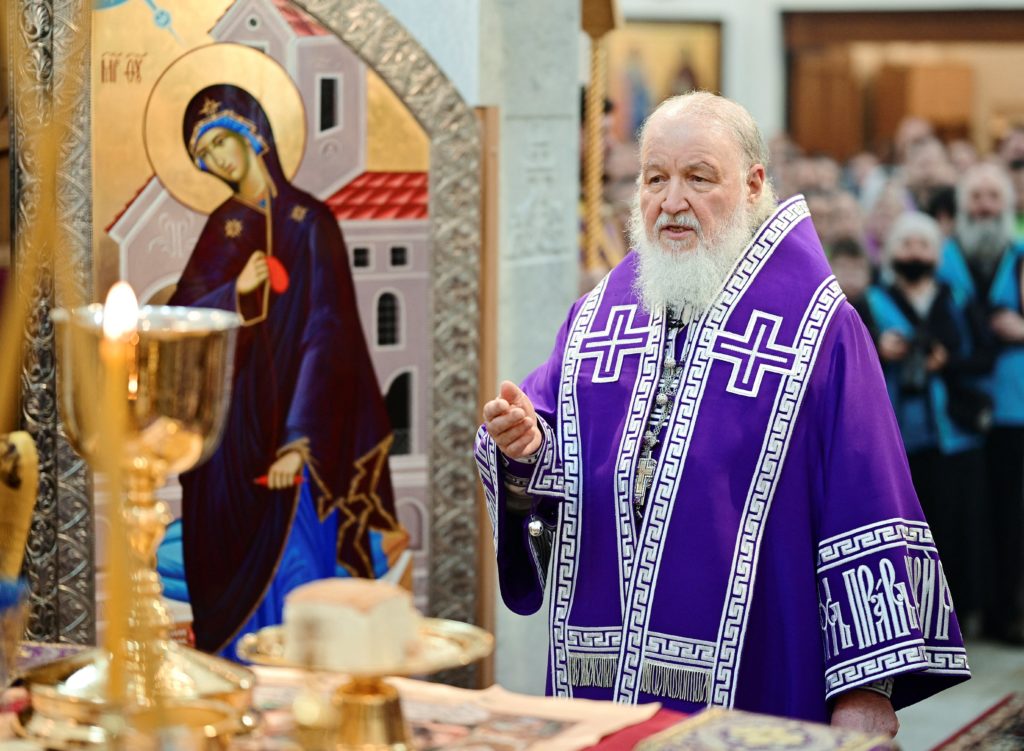In its second appeal to Russian Orthodox Patriarch Kirill, the World Council of Churches asked that he use his spiritual authority to call for a ceasefire in Ukraine over Easter so that believers will be able to celebrate the holiday in peace.
“People lost their trust and hope in politicians and in a possible peaceful negotiation and a ceasefire,” said Reverend Archpriest Ioan Sauca, acting secretary general of the World Council of Churches, in his April 19 letter.
Sauca, a senior priest from the Orthodox Church of Romania, said the WCC receives daily requests from faithful not only in Russia and Ukraine, but throughout the world, requesting that they contact Kirill and ask him “to intervene and mediate for a peaceful solution, for dialogue rather than confrontation, for end to the fraternal blood shedding.”
“I am aware that it is not in your power and authority to stop the war or to influence those who have such powers of decisions. But the faithful are waiting for a comforting word from Your Holiness,” Sauca said, saying the faithful believe that if Kirill, as the spiritual father of millions of Orthodox, makes a public call for a ceasefire, “that might have an impact.”
This request came in the second letter Sauca has sent Kirill since the war in Ukraine began following Russia’s Feb. 24 invasion. The first, sent in March, asked Kirill to publicly condemn the war, which Kirill has not done. Rather, in his response to Sauca’s March letter, Kirill sidestepped the request and instead blamed the war on what he said was Western “Russophobia” and a disregard for Russia’s security concerns.
Given Kirill’s increasingly vocal support for the war, the WCC is currently evaluating whether to expel the Moscow Patriarchate during its June assembly.
It is also rumored that a potential second meeting between Kirill and Pope Francis, which many thought would be called off due to the leaders’ differences over the Ukraine war, could still be on the books, taking place in Jerusalem after the pope’s brief visit to Lebanon in June.
In Tuesday’s letter, Sauca noted that Orthodox and Greek Catholic faithful are currently observing their Holy Week, and will celebrate Easter, called Resurrection Day, in just a few days’ time.
He recalled how during the first world war, a pause in fighting was made so soldiers could celebrate Resurrection Day without the threat of bombs falling or missiles striking.
In light of the upcoming proclamations of Jesus’ rising from the dead, “I have dared to write to you, with deep respect and filial love,” Sauca said, saying the WCC has heard rumors that plans are being hatched “to attack churches during the Easter night celebrations and to spread even more terror, fear, mutual accusations, and demonization.”
“We have kept asking the political leaders for a ceasefire and for return to the table of dialogue since the very beginning of hostilities but with no result. On the contrary, in the present circumstances we all see that the war has intensified,” he said.
In light of this, “Our humble request to your holiness in this particular and impossible situation is to intervene and ask publicly for a ceasefire for at least a few hours during the Resurrection service.”
Doing this, Sauca said, would “give a chance to the soldiers and to the terrified civilians to embrace and greet one another with the paschal greeting, to silence for a moment the bombs and the missiles and to hear instead the triumphant sound of the church bells and the joyful signing of the faithful people.”
“May such a short ceasefire be a foretaste and a proof that a lasting peace can be achieved,” he said.

